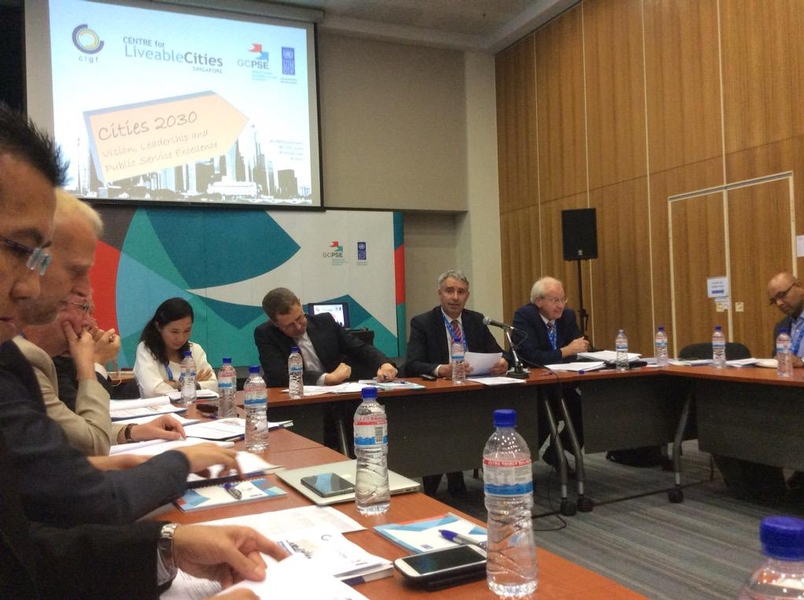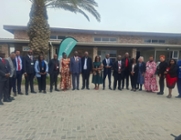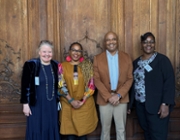CLGF Cities 2030 meeting

17 October 2015
CLGF celebrated UN World Habitat Day with an interactive meeting of mayors and city managers on Cities 2030: Vision, Leadership and Public Service Excellence as part of the newly launched Commonwealth Sustainable Cities Network in Singapore on 5-6 October. Hosted in partnership with the UNDP Global Centre for Public Service Excellence and the Centre for Liveable Cities (CLC) Singapore, the event explored ways in which cities can help develop the new Sustainable Development Goals (SDGs) and how the political and administrative spheres of leadership intersect to handle the complexity of the urban system and ways to reform governance models, in order to address the new goal (SDG 11) on cities.
The meeting brought together city mayors, city chief executives/managers and development expert-practitioners from across the Commonwealth including Kingston and St Andrews (Jamaica), Maputo (Mozambique), Peshawar (Pakistan), Colombo (Sri Lanka), Windhoek (Namibia), Hastings and Birmingham (UK), Male (Maldives), Strovolos (Cyprus), Freetown (Sierra Leone) and Durban (South Africa) to agree ways in which democracy, good governance and local economic development can address challenges related to urban governance to strengthen the voice of local government in delivering the SDGs.
The meeting adopted the Singapore Statement on Commonwealth Cities Implementing the 2030 Agenda on Sustainable Development and the mayors of Kingston, Jamaica; Strovolos, Cyprus and Windhoek, Namibia, agreed to form a steering committee to take this forward.
Speaking at the event, CLGF Chairperson Mayor Lawrence Yule said, “It is important that the implementation of the SDGs is bottom-up and is grounded in local realities, deploying, as far as feasible, existing city policy tools in addition to readily available local data and urban statistics, instead of re-inventing the wheel”.
Given its unique central and local government membership, CLGF’s newly launched Sustainable Cities Network aims to provide a valuable and practical vehicle for cities to jointly help set, implement and monitor the SDGs. It will help inform citizens and communities about the importance of the Agenda 2030 for Sustainable Development and engaging with central and provincial government, development partners, academia, civil society and private sector partners to ensure the application and localisation of relevant SDGs in our own areas of jurisdiction.
The city-to-city network will also focus on making cities inclusive, safe, resilient and sustainable; creating effective, accountable and inclusive institutions; promoting economic growth and employment; building resilient infrastructure; and addressing climate change, with special attention to the needs of cities in least developed countries and small island developing states.
Back to News





